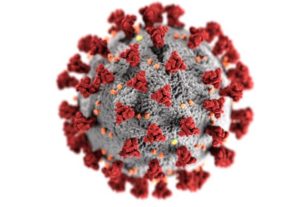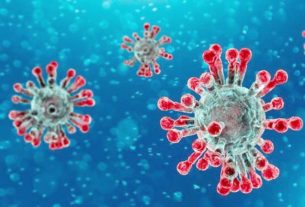From Our Bureau
19TH JULY 2020
The Corona Virus (COVID-19) pandemic situation remained grim globally, with the confirmed cases across the world soaring to 1,40,43,176 and the death toll hitting 5,97,583 in the 216 affected countries and territories, according to the latest update from the World Health Organization (WHO).
Globally, American region continued to be the worst-hit with 73,76,748 confirmed cases and 3,05,285 deaths. Europe came next with 30,60,525 confirmed cases and 2,06,965 deaths. Eastern Mediterranean region reported 13,74,503 confirmed cases and 34,226 deaths.
South-East Asia region’s tally stood at 13,91,407 confirmed cases and 33,543 deaths. African region registered 5,79,091 confirmed cases and 9,546 deaths. Western Pacific region recorded 2,60,161 confirmed cases and 8,005 deaths. WHO Risk Assessment at global level remained very high.
COVID-19 affects us all, but most especially vulnerable populations such as refugees and migrants. To assess the public health and social impact of the COVID-19 pandemic on refugees and migrants, WHO and partners are conducting a global study called ‘ApartTogether.’
To combat misconceptions about COVID-19 in Nigeria, WHO and the Nigerian government are scaling up strategies to demystify COVID-19 by working with traditional leaders. The aim is to empower traditional leaders, who command great respect, to participate in on-going sensitization efforts and to sustain the strategy by letting community members lead the campaign.
Subject in Focus: Additional health measures on international traffic
As of 10th July 2020, as many as 192 out of 196 States Parties to the International Health Regulations (IHR 2005) reported additional health measures that significantly interfere with international travel as defined under Article 43 of the IHR. Since 6 February 2020, WHO has shared this information on a weekly basis through the Event Information Site, a secure platform accessible by national IHR focal points and United Nations agencies.
The majority of measures taken by Member States relate to the denial of entry of passengers, followed by flight suspensions, visa restrictions, border closures and quarantine measures. 75 countries have sent official notifications to WHO to communicate the implementation or lifting of measures, as well as the public health rationale.
From the official reports received by WHO, these measures have been implemented within the context of a comprehensive set of interventions aimed at limiting the rapid spread of the disease that could overburden the country’s healthcare system and its response capacity. During the last 3 weeks, at least 46 countries have started to lift or partially lift some of the measures, based on risk assessment informed by multiple risk factors.
The Temporary Recommendations to States Parties on additional health measures which were issued following the 3rd meeting of the IHR Emergency Committee on 30th April 2020 include:
Avoid restrictions on international transport of food, medical and other essential supplies and permit the safe movement of essential personnel required for an effective pandemic response;
Implement appropriate travel measures with consideration of their public health benefits, including entry and exit screening, education of travellers on responsible travel behavior, case finding, contact tracing, isolation, and quarantine, by incorporating evidence on the potential role of pre-symptomatic and asymptomatic transmission;
Implement and monitor case finding and contact tracing of travellers, using digital tools where appropriate;
Continue to review travel and trade measures based on regular risk assessments, transmission patterns at origin and destination, cost-benefit analysis, evolution of the pandemic, and new knowledge of COVID-19;
Engage in global efforts to respond to the challenges of COVID-19 in managing maritime vessels;
Not implement trade restrictions beyond those considered to be of public health importance in accordance with relevant international agreements; and,
Continue to provide appropriate public health rationale to WHO for additional health measures in accordance with IHR. (eom)


